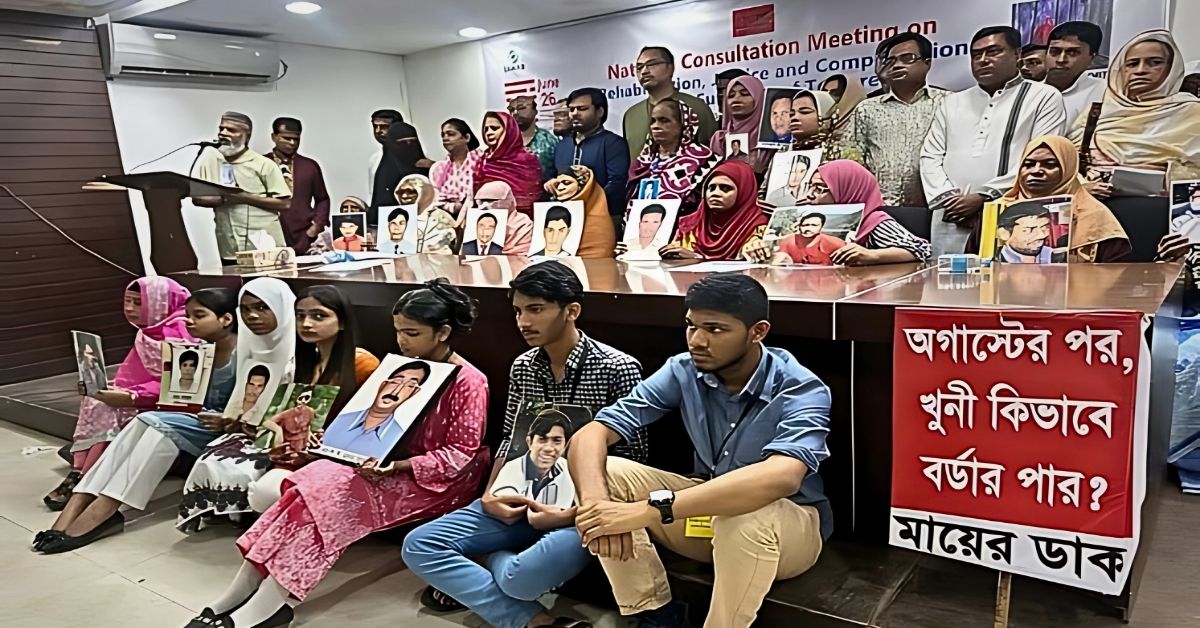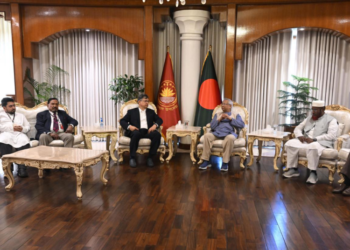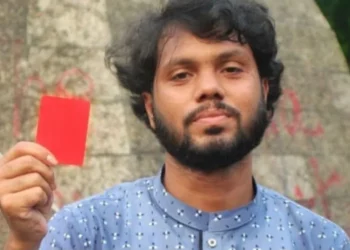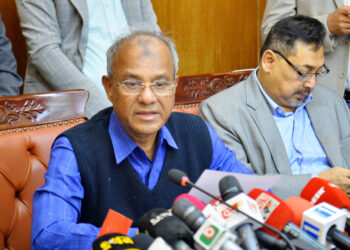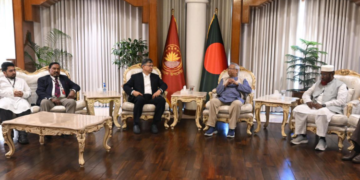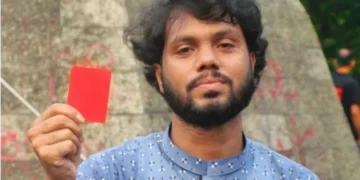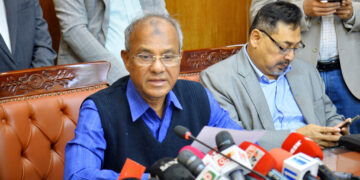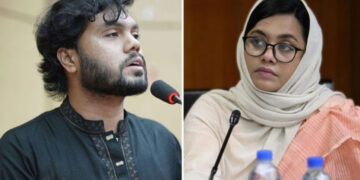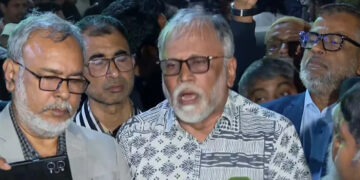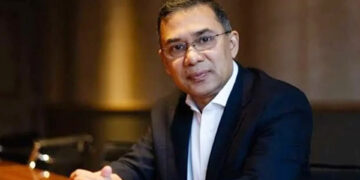How many more tears must we shed? How many more days must we walk with our loved ones photos pressed to our chests before we see justice?—these were the heart-wrenching words echoed by families of victims of enforced disappearances and extrajudicial killings under the past Sheikh Hasina-led government.
On Wednesday, at the Zahur Hossain Chowdhury Hall of the National Press Club, victims’ families raised their voices at a national consultation session. The event focused on state custody torture, rehabilitation, and compensation for those affected. However, the pain ran deeper. Many participants expressed outrage that justice still hasn’t been served for the crimes committed over the past decade.
One of the core grievances was the denial of access for victims’ families to visit the “Ainaghar” the suspected secret detention facility. “Why are we not even allowed to see where our loved ones may have been held?” they asked.
The session was organized jointly by Human Rights Development Center (HRDC), Mayer Dak Foundation, and SWAB, in observance of the United Nations International Day in Support of Victims of Torture. Alongside grieving families, political leaders, lawyers, researchers, and human rights defenders joined to express solidarity.
Among them was 12-year-old Adiba Islam Hridi, daughter of Parvez Hossain former general secretary of Banshal Thana Chhatra Dal who was picked up from Shahbagh in December 2013 and never returned.
With trembling words, she said, “After August 5, I thought my father would come home. I wanted to hold his hand. But even after 10 months, he didn’t return. I don’t know if he’s alive or dead.” She added, “My father was disappeared just because he belonged to a political party. I want justice.”
Read More: Russia Brings a Secured New Messaging App for WhatsApp-Telegram Alternative
Mahdi Amin the advisor to BNP’s acting chairman Tarique Rahman, noted that the families of enforced disappearance victims have played a significant role in the movement against the Awami League regime. He promised that if BNP returns to power, no family will ever have to face this kind of injustice again, and such secret detention centers would never exist.
Farzana Sharmin, a member of BNP’s Human Rights Committee, demanded justice for all disappearances, abductions, and killings over the last 17 years under state forces. She shared her own terrifying story that how the government allegedly tried to abduct her for working on human rights issues.
Asaduzzaman Fuad, General Secretary of Amar Bangladesh Party (AB Party), shared how families constantly ask, “How much longer will we have to cry before we see justice?” He also addressed the public backlash against the recent detainment of former Chief Election Commissioner KM Nurul Huda, saying, “If that’s called mob action, then let’s not forget the first mob backed by the state was created by the Awami League itself.”
Ariful Islam Adeeb the senior joint convener of the National Citizens’ Party (NCP), claimed nearly 10,000 people were subjected to extrajudicial killings, disappearances, or torture during the Awami League regime. He urged justice for every single victim.
Sanjida Islam, an organizer from Mayer Dak, spoke about the constant harassment families face when they demand justice. “They never let us speak. They never allowed the truth about disappearances and killings to come out. These weren’t isolated incidents. These were planned acts to cling to power after rigged elections,” she said.
Others who spoke at the event included SWAB Chairman SM Rasheduzzaman, Mayer Dak coordinator Afroza Islam, and Nazmul Huda, a journalist from Savar who himself was once forcibly disappeared.
The event was not just another gathering. It was a mirror held up to the state that is a reminder that families are still waiting, still fighting, and still crying out for justice in a system that has long denied them closure.

